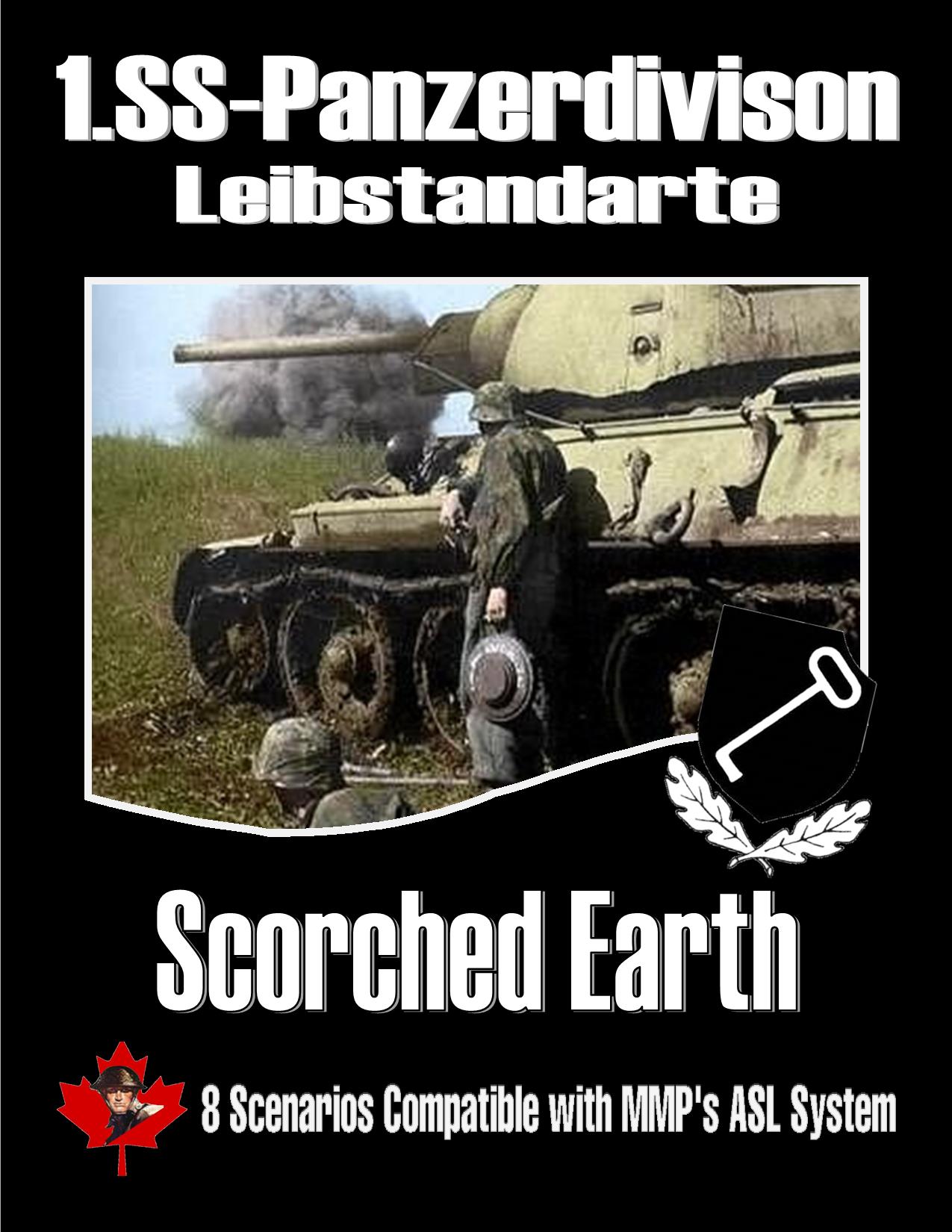

The fifth module following the history of the 1.SS-Panzerdivison Leibstandarte Adolf Hitler continues with the unit taking part in the battles on the Eastern Front from January to March 1944. This eight scenario pack is compatible with MMP's ASL System.
LSSAH 33 - LIPOVEZ STATION RUSSIA, 27 January 1944: The Soviet 1st Ukrainian Front continued attacking westward, driving the Germans back to the Rossava River. 1.SS-Panzer Division Leibstandarte received new orders for the upcoming spring offensive. The objectives of the new offensive were the encirclement of the Soviet infantry divisions standing in front of the XXXXVI.Panzer Korps and the destruction of the tank units of the Soviet 1st Tank Army, found facing the German III.Panzer Korps.
LSSAH 34 - KOSSIAKOKA RUSSIA, 4 February 1944: General Kravchenko’s 6th Tank Army managed a breakthrough in the north, linking up with General Konev’s troops in Zvenigorodka on 28 January. With the link up, the encirclement of Cherkassy was complete. Inside a 40 by 100 kilometre oval-shaped “pocket” were some 50,000 German troops of the XI. and the XXXXII.Korps. Fearing a repeat of the disaster that befell the Germans at Stalingrad the previous year, Field Marshal Manstein acted quickly, stripping forces from other parts of the front to form a breakthrough force aimed at relieving the two encircled German Corps.
LSSAH 35 - FEDIOKOVKA RUSSIA, 9 February 1944: The Germans launched their attack, to relieve the Cherkassy Pocket, on the morning of 4 February. The northern push to relieve the encircled six and a half German divisions inside the pocket was spearheaded by a mighty phalanx of 34 Tigers and 47 Panthers of Schwere Panzer Regiment Bäke.
LSSAH 36 - VOTYLEVKA RUSSIA, 12 February 1944: At 0430 hours, a sizeable force from the Soviet 1st Ukrainian Front launched an attacked against SS-Panzer Aufklärungs-Abteilung 1, Leibstandarte in Repki, forcing the Germans to pull back into a new position east of Votylevka during the morning. Then again, at 0700 hours, the Soviets attacked the position in Votylevka from all sides, supported by heavy artillery pieces, tanks, assault guns, and planes.
LSSAH 37 -
MANATSCHIN RUSSIA, 5 March 1944:
The Soviets resumed their offensive now dubbed “The Mud
LSSAH 38 - SWINNE RUSSIA, 6 March 1944: The weather turned once more as a cold front moved in from Siberia, freezing the ground and allowing vehicle movement. The Soviets immediately launched an attack with their spearheads, stabbing deep into the fragile German line.
LSSAH 39 - NORTH OF VOLTOVZY RUSSIA, 11 March 1944: Marshal Zhukov's 1st Ukrainian Front attacked at 0800 hours on 4 March. Within 48 hours, and despite the clinging mud, the Soviets had broken through on a 160 km front, and Zhukov's tanks and motorized infantry had reached a depth of 40 km. Meanwhile in the German Headquarters of Army Group South, Field Marshal Manstein was developing a plan, but it hinged on his Panzer forces continuing to receive their supplies of fuel and ammunition.
LSSAH 40 - ANDERYEVKA RUSSIA, 30 March 1944: At the end of March, the Soviet First Ukrainian Front launched an almost uninterrupted attack along the entire front, with its armoured spearheads able to penetrate deep into the Germans’ rear areas. In an effort to prevent from being encircled, Field Marshal von Manstein was forced to order Army Group South to pull back west towards the Carpathians and southwest into Romania
Map Boards Required: 2, 3, 4, 5, 17, 18, 24, 33, 43, 44, 47, & x